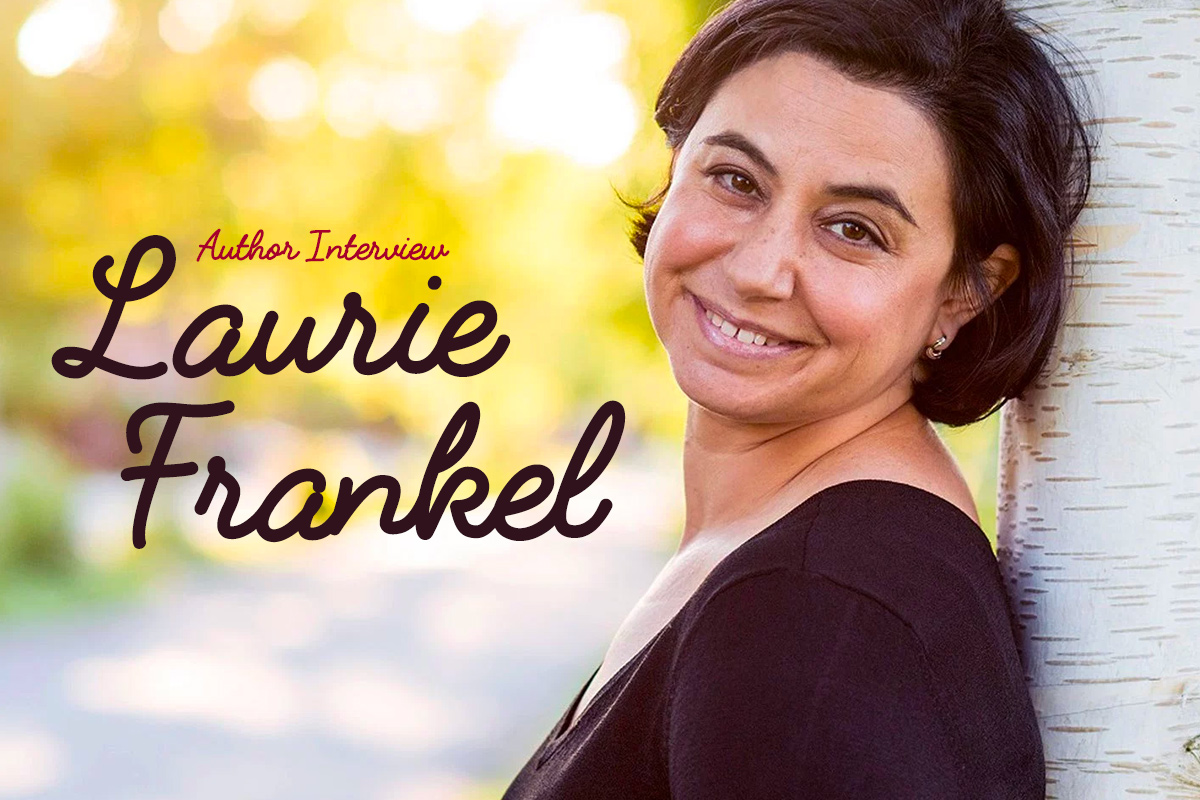
Laurie Frankel, author of This Is How It Always Is and Goodbye for Now, filled us in on her inspiration, the process of her work being optioned for film/tv, and (of course) her favorite audiobooks and what she loves about independent bookstores.
You take on very relevant issues in your work, including technology in Goodbye for Now and what life is like for a transgender child and their family in This Is How It Always is. Can you talk a little bit about where you get the inspiration and how those stories take shape as you write?
“What do I want to say?” is more or less the first question I ask myself as I start a project or sniff around for ideas between projects, which I suspect is how I end up with pretty timely topics — they’re on my mind, on my things-to-rant-about list, in my can’t-stop-thinking-about-this heart, what I’d shout from the rooftops if I could, what I’d tell the world if only everyone would listen. Books have made my life immeasurably better, and I want to pass that on. I’m inspired by so much — books and articles I read, plays I see, art I engage with, but also my family, my kid, my students, the world changing faster than we can keep up with all around us. So that’s where it starts. My writing process is convoluted and indirect though, to say the least, so my stories change shape over and over and over again as I write. They go in directions seemingly of their own accord, often without my say so or even my input.
When and how did you know that you wanted to write novels?
I have always, always, always been a huge reader, and as a reader, I’m very drawn to the novel form. It’s most of what I read, so it’s not a huge surprise that that’s what I like to write. In some ways, I’ve wanted to be writing novels as long as I’ve wanted to be doing anything. In others, I had drafted one before I knew whether it not it was something I could do (and I really think that was the only way for me to find out.)
Your audiobooks This Is How It Always Is (narrated by Gabra Zackman) and Goodbye for Now (narrated by Kirby Heyborne) are on Libro.fm. How did you work with the narrators of these audiobooks (if at all) as they were being made?
I didn’t. My publisher does all of that, not least because it’s such huge, important work, and I know nothing about it. But I’m incredibly grateful to these wonderful actors and to all of my audiobook narrators. So, so many readers tell me they listened to the audiobook and loved it, and that’s such a gift to the book and to me and so much hard work. I’m so thankful.
Your novels have been optioned for film and tv. Can you talk a little bit about what that process is like and your level of involvement?
My level of involvement varies project to project and at various stages of the project as well. Whereas I live and die with the books, the film and TV projects feel much more remote, much more cherry-on-top, and that’s great. I get to be excited when we’re working on it and there’s interest and things are going well, and in the lulls, I get to do something else without fretting. I find it much easier emotionally to balance the Hollywood stuff than the book stuff. It’s all very glamorous which is basically the opposite of novel-writing (which is sitting on your butt in your pajamas all day and trying to remember to shower occasionally.)
Are you an audiobook-listener? If so, what are some of your favorite audiobooks?
Audiobooks are — and I think this is apt — the perfect accompaniment to book tour. You know you’re listening to something good when you’re wishing a long car ride were even longer. I loved listening to Julia Child’s My Life in France and all of Bill Bryson’s wonderful travelogues which, as an added bonus, he often reads himself. There’s something so lovely about listening to other people’s travel stories and travel-as-work stories when you’re traveling and traveling for work yourself.
What have independent bookstores meant to you personally and professionally?
Indie bookstores have meant the world to me personally and professionally. Just the world. They are friends and partners in this wonderful rollercoaster of a business. They’ve provided me with countless incredible reads that have in every way changed my life. They are ports in a storm and fellow lovers and celebrators of my favorite thing: stories. Getting to know booksellers is one of the very best perks of this job, and it’s because of them that I get to do this work as a job in the first place. As a reader and as a writer, I could not be more grateful to or for them.
We know you’re involved with Hugo House, can you tell us a bit about what they do and how you got involved?
Hugo House is a nonprofit writing center in Seattle that offers classes, workshops, readings, lectures, consultations, teen programs, outreach, networking, and space for writers to get together and work. I’ve taught classes there, helped with programming, attended events, fundraised, and written happily in its quiet corners. I am so lucky to have an organization like this in my city.



